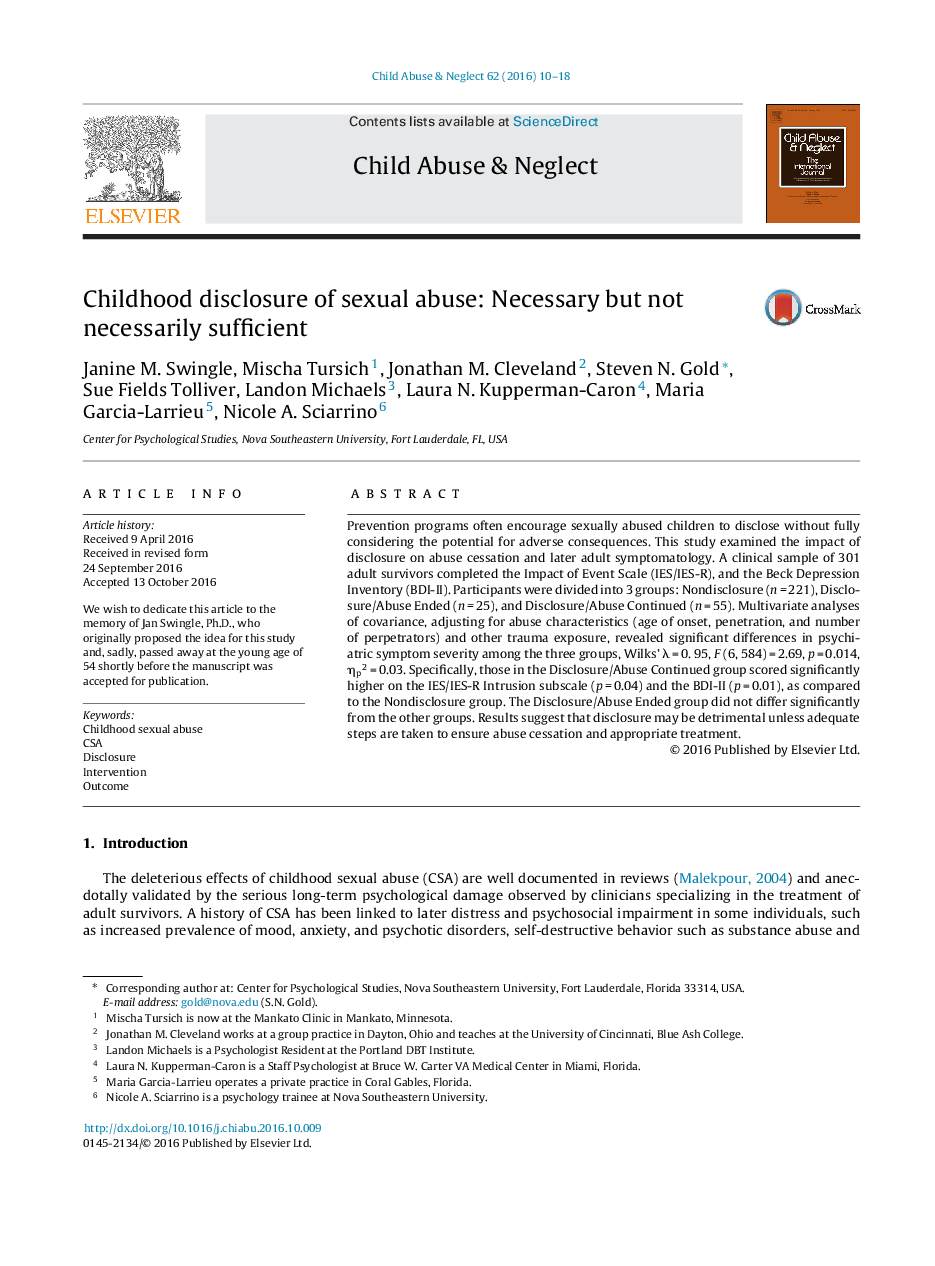| Article ID | Journal | Published Year | Pages | File Type |
|---|---|---|---|---|
| 4936149 | Child Abuse & Neglect | 2016 | 9 Pages |
Abstract
Prevention programs often encourage sexually abused children to disclose without fully considering the potential for adverse consequences. This study examined the impact of disclosure on abuse cessation and later adult symptomatology. A clinical sample of 301 adult survivors completed the Impact of Event Scale (IES/IES-R), and the Beck Depression Inventory (BDI-II). Participants were divided into 3 groups: Nondisclosure (n = 221), Disclosure/Abuse Ended (n = 25), and Disclosure/Abuse Continued (n = 55). Multivariate analyses of covariance, adjusting for abuse characteristics (age of onset, penetration, and number of perpetrators) and other trauma exposure, revealed significant differences in psychiatric symptom severity among the three groups, Wilks' λ = 0. 95, F (6, 584) = 2.69, p = 0.014, ηp2 = 0.03. Specifically, those in the Disclosure/Abuse Continued group scored significantly higher on the IES/IES-R Intrusion subscale (p = 0.04) and the BDI-II (p = 0.01), as compared to the Nondisclosure group. The Disclosure/Abuse Ended group did not differ significantly from the other groups. Results suggest that disclosure may be detrimental unless adequate steps are taken to ensure abuse cessation and appropriate treatment.
Related Topics
Health Sciences
Medicine and Dentistry
Perinatology, Pediatrics and Child Health
Authors
Janine M. Swingle, Mischa Tursich, Jonathan M. Cleveland, Steven N. Gold, Sue Fields Tolliver, Landon Michaels, Laura N. Kupperman-Caron, Maria Garcia-Larrieu, Nicole A. Sciarrino,
